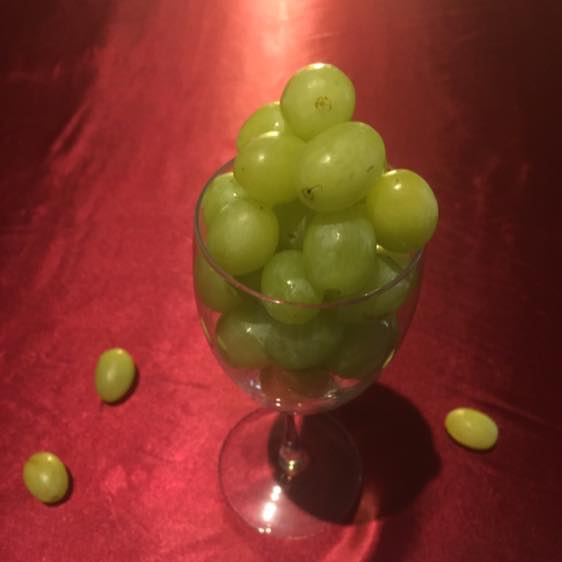Grape
Vitaceae
Grape: four and a half stars for what is usually a four and a half star fruit. It is safe to say that grapes have been present at every significant juncture of human history: the Great Flood, the burial of Gilgamesh, the seduction of Lot, the invention of leather shoes, the discovery of transubstantiation, the bath of Archimedes, the manufacture of gunpowder, the Boston Tea Party, women’s suffrage, and the civil rights movement. All of these events, to name but a few highlights, are connected to grapes in some way. The consumption of these specimens was no less momentous. I recommend pairing your grapes with some gouda.

We had made our fire on the lee of the levee, and that is where we slept. Several times throughout the night, I heard Blotch get up to chew on the discarded melon seeds and pulp. My eldest nephew tapped me awake at dawn, and asked if it was time to leave. I told him that the pitch on the raft needed more time to dry, and that we should sleep for another few hours. He sighed.
While my eldest nephew was performing his ablutions, I ate my breakfast, and then wrapped our most water sensitive possessions in the oilcloth. Our possessions were few, and the oilcloth was large. It wrapped around to form many layers of protection. We carefully dragged the melon-raft down to the water, and slowly pulled it off the shore into the water. As each melon entered the water, our excitement grew more intense. Once all the melons were partially submerged, my nephew stepped on to the raft. Each melon in the raft moved up and down, with each melon’s elevation following ripples that propagated from my nephew’s two feet. Despite the movement, the melon-raft remained afloat.
We then tied each barrel – orange juice, pickles, melon flesh – to the raft, and slid them into the water to trail behind, half-floating. My eldest nephew waved a pickled plum to entice Blotch onto the raft, and I pushed us off with my curtain rod.
My curtain rod was of the telescopic genre, where one end could be twisted sunwise if looking top-down, or widdershins if looking bottom-up, in order to extend and lengthen the rod. Conversely, if the rod is twisted widdershins from top-down, or sunwise from bottom-up, the rod becomes shorter, and quite a bit more portable. In this instance, it was necessary for me to extend the rod to its full potential, so that I was able to reach the riverbed and propel us upstream.
After some initial unsteadiness with the rod, I was able to propel our little melon-raft against the flowing current. We were making progress, but we would need to either increase our propulsion or decrease the current, if we were to reach the coast before we ran out of orange juice.
I took the next exit onto a canal, where the water was calmer. Further ahead, we saw a gentleman fishing from a punt. I hailed him and as we approached I asked whether the fish were safe. His face and hands were covered in sores.
We passed an overgrown park, and the remains of a walled garden. Two of the walls had fallen, and I could see the remains of a boiler. The boiler had previously been used to heat the walls, which gave a more temperate climate. It had not been used in some time. I could make out the sharp teeth of what looked like grape leaves crawling all over the fallen walls, and I surmised that this had been a vineyard previously. The owners had gone, but the grapes had survived. I never would have thought that I would see grapes growing unaided, in this part of the country, in this part of the year.